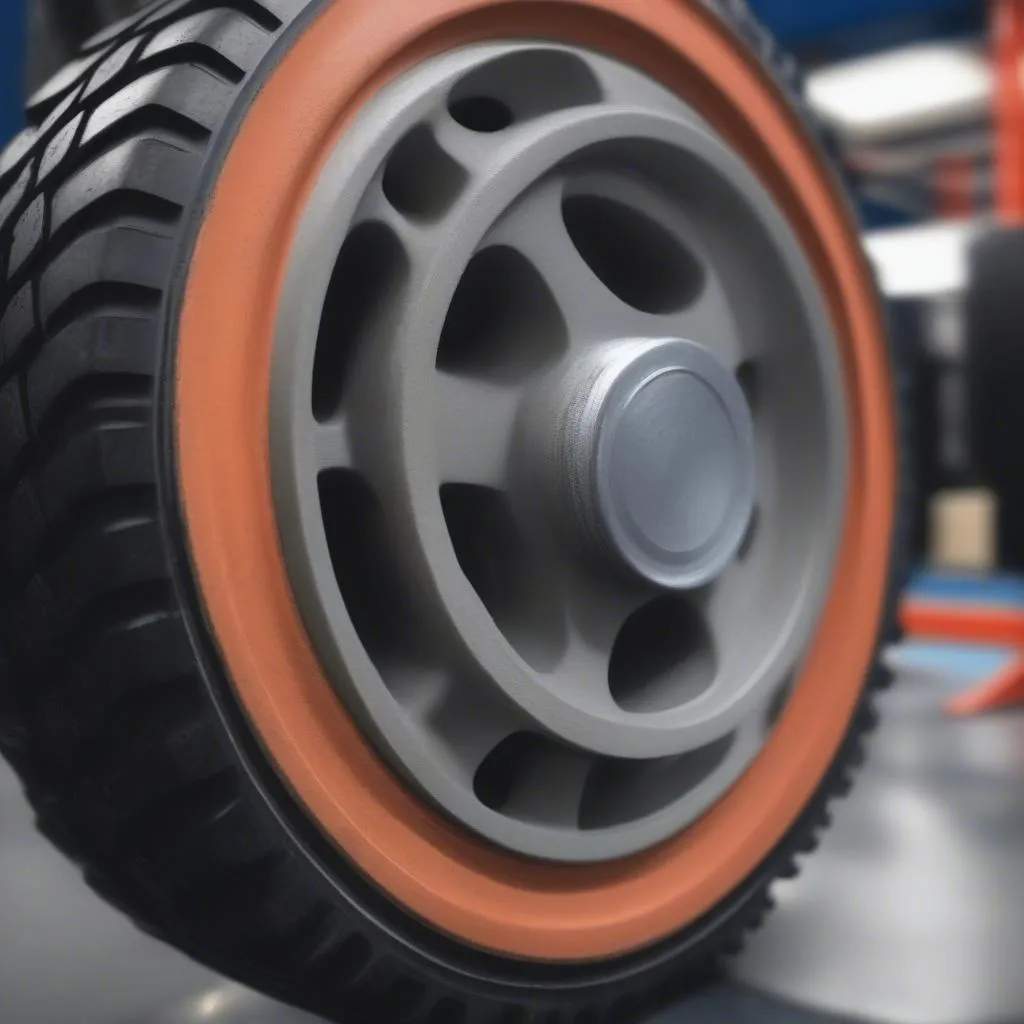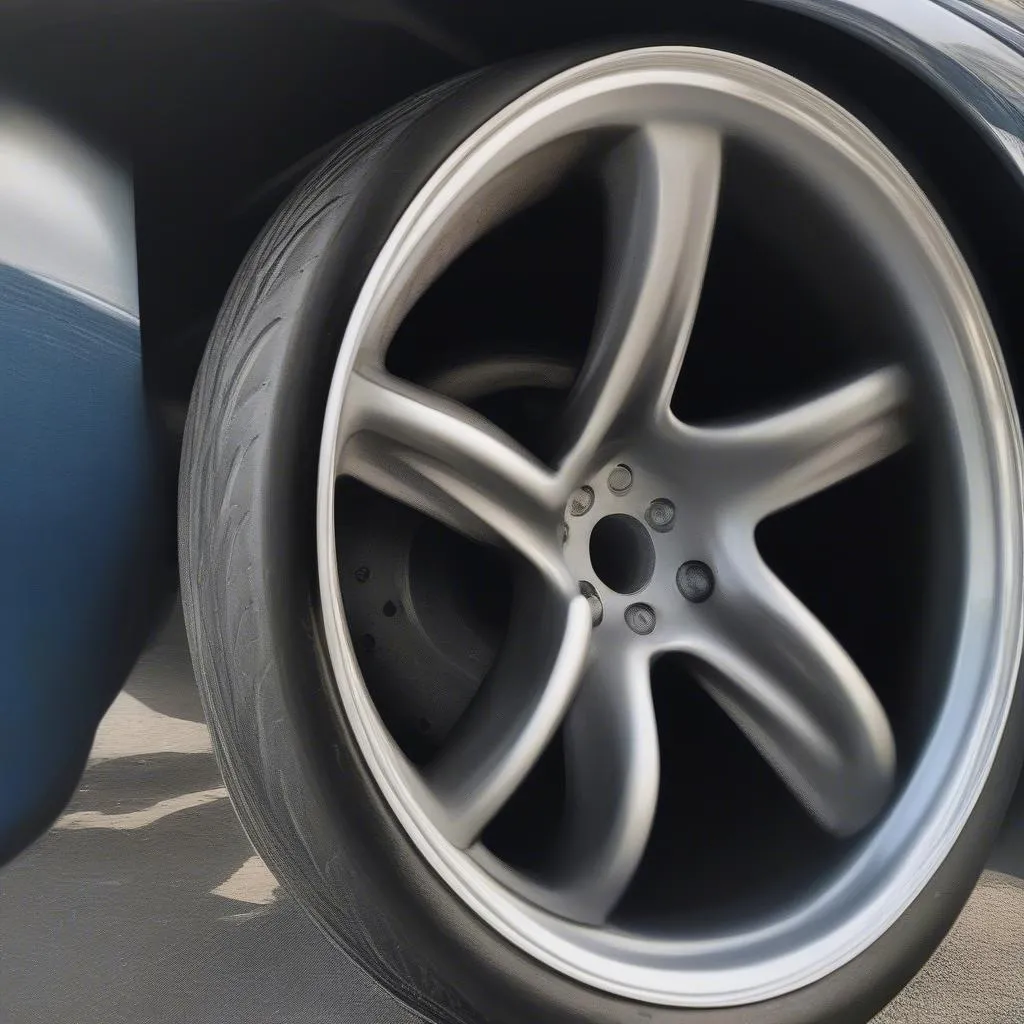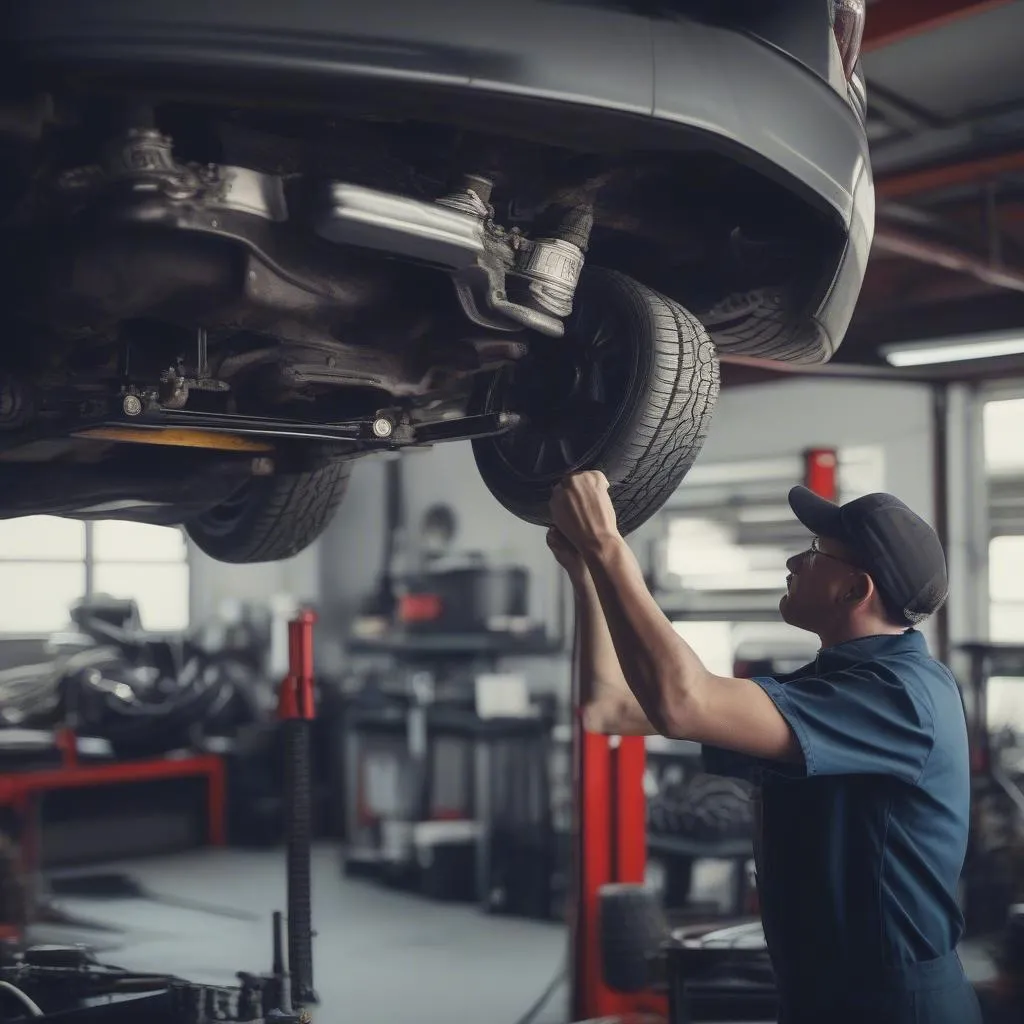Imagine cruising down the highway, enjoying the open road, and suddenly your car starts shaking like it’s on a rollercoaster. It’s a frightening and unsettling experience, especially when you’re at higher speeds. It can make you wonder, “Why is my car shaking above 60 MPH?” You’re not alone! Many drivers have experienced this frustrating issue.
Understanding the Causes of Car Shaking at Higher Speeds
There are several reasons why your car might shake at higher speeds, and it’s important to understand the root cause to find the right solution. Let’s break down some of the common culprits:
1. Wheel and Tire Issues: The Most Likely Culprit
You’re probably thinking, “I just got my car inspected! How can tires or wheels be the issue?”
Well, here’s the thing. Even if your tires seem fine, they might be the cause of your car shaking.
Common Problems with Tires:
- Unbalanced Tires: This is the most common reason for car shaking, especially at higher speeds. When your tires are unbalanced, the weight distribution is uneven, causing vibrations that travel through the steering wheel, the entire vehicle, and even into your seats. Think about it like a spinning wheel on a bicycle – if it’s not balanced, it’ll wobble!
- Uneven Tire Wear: Uneven wear patterns can cause tire imbalance and lead to shaking. This could be due to improper tire pressure, alignment issues, suspension problems, or even just natural wear and tear.
- Damaged Tires: Cracks, bulges, or other damage to the tire can lead to vibrations. Always get your tires inspected regularly to catch any potential problems early on.
Wheel Issues:
- Bent Rims: A bent rim can be another culprit. If the rim is damaged, it can create a wobble that transfers to the entire vehicle.
- Loose Lug Nuts: Loose lug nuts can cause the wheel to detach from the vehicle, so always make sure they are properly tightened!
2. Suspension Problems: A Less Common Cause
While tire and wheel issues are most common, your car’s suspension system can also be the source of the problem.
Common Suspension Issues:
- Worn Out Shocks or Struts: These components absorb bumps and uneven road surfaces, helping to keep your car stable. If they are worn out, they can lead to a shaking sensation, especially at higher speeds.
- Worn Out Ball Joints: Ball joints connect your suspension to the wheels. If they are worn out, they can create a loose or wobbly feeling in the steering.
- Loose Suspension Components: Any loose components in the suspension system can contribute to shaking. An experienced mechanic can inspect these components to see if they’re the problem.
3. Engine and Drivetrain Issues: Less Common but Serious
While less common than wheel and tire issues, problems with your engine and drivetrain can also cause your car to shake.
Common Engine and Drivetrain Issues:
- Misfire: A misfire occurs when one or more cylinders in your engine aren’t firing properly. This can cause vibrations that travel through the vehicle.
- Transmission Problems: Issues with your transmission, like slipping gears or a faulty torque converter, can also lead to vibrations.
- Worn Out Drive Shaft: A drive shaft connects your transmission to the wheels. If it’s damaged or worn out, it can cause a shaking sensation.
Troubleshooting Your Car Shaking at Higher Speeds
Here are some steps to take to figure out why your car is shaking:
- Check Your Tires: Inspect your tires for any signs of damage, uneven wear, or low tire pressure.
- Have Your Wheels Balanced: This is a simple procedure that involves adding or removing weights to balance the tires.
- Get Your Tires Rotated: Rotating your tires can help to even out wear patterns and prevent unbalanced tires.
- Check Your Suspension System: A mechanic can inspect your shocks, struts, ball joints, and other suspension components for wear or damage.
- Inspect Your Engine and Drivetrain: If your car is shaking, even after checking your tires and suspension, it’s essential to have your engine and drivetrain inspected.
What Other Questions Do People Have?
Here are some common questions that people have about car shaking at higher speeds:
- What if the shaking gets worse at higher speeds? This is a good indication that the problem is related to your tires or wheels.
- What if the shaking starts suddenly? If the shaking begins abruptly, it could be due to a sudden tire problem, a loose suspension component, or an engine misfire.
- What if the shaking is accompanied by other noises? This could be a sign of a more serious problem.
- What if the shaking feels like it’s coming from the steering wheel? This could be a sign of tire imbalance, wheel damage, or a problem with your steering components.
What Can I Do to Prevent Car Shaking?
- Regular Maintenance: Schedule regular maintenance, including tire rotations, tire pressure checks, and suspension inspections.
- Drive Safely: Avoid hitting potholes and curbs.
- Listen to Your Car: Pay attention to any unusual sounds or vibrations.
When to Seek Professional Help
If you’ve checked your tires and suspension and still experience shaking, or if you notice any other unusual noises or symptoms, don’t hesitate to consult a trusted mechanic. They can diagnose the problem and recommend the right solution.
Remember: Car shaking can be a sign of a serious problem, so it’s essential to address it as soon as possible. Don’t ignore it!
Additional Resources
- DiagXCar: We offer a wide range of articles and resources on car maintenance and troubleshooting, including information on wheel shaking at high speeds. https://diagxcar.com/wheel-shaking-at-high-speeds/
- DiagXCar: We also have articles on other car shaking issues, such as shaking after new tires, shaking when turning, and shaking when going over 50 mph. https://diagxcar.com/car-shaking-after-new-tires/ https://diagxcar.com/car-shaking-when-turning-on/ https://diagxcar.com/car-shaking-when-going-over-50/ https://diagxcar.com/car-shakes-above-50-mph/
 Tire Imbalance
Tire Imbalance
 Bent Rim
Bent Rim
 Suspension Inspection
Suspension Inspection
Contact Us
If you need help with car diagnostics, our team of experts is here to help! Contact us on WhatsApp: +84767531508.